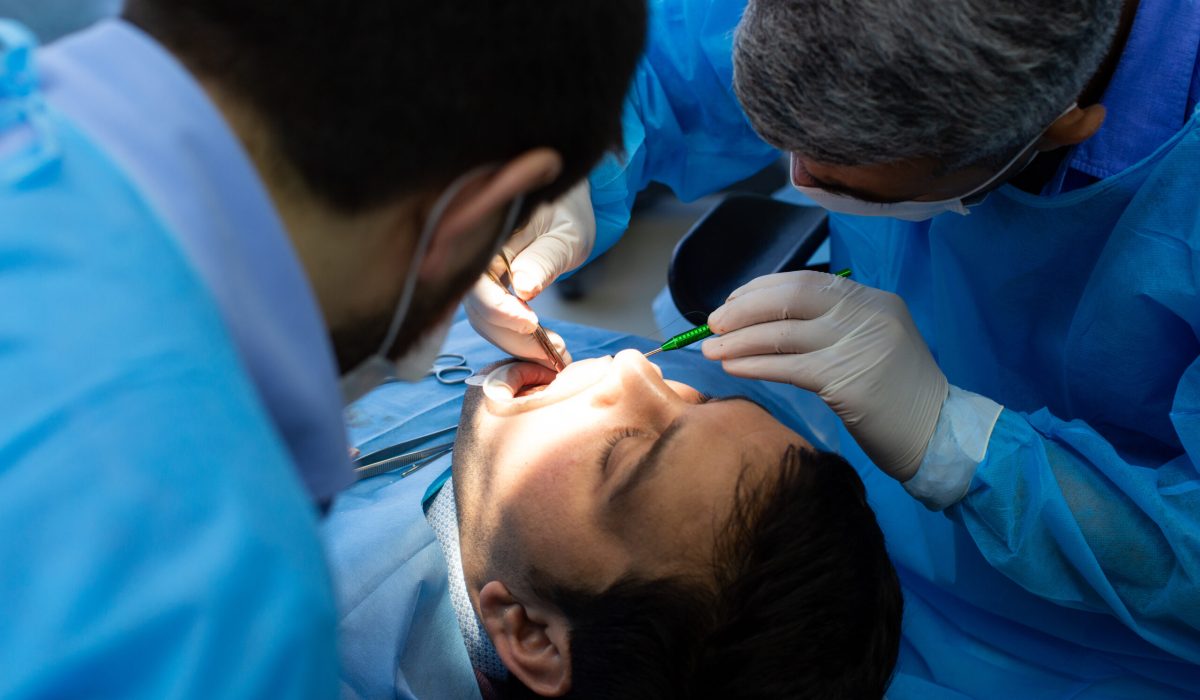At Smiles in Currambine, we understand that the subject of teeth is a rather sensitive one. Often enough, healthy teeth add to the cause of leading a good life. Be it in the functional or aesthetic sense, the state of your teeth can determine a lot. When things go south and your teeth are in bad shape, you could find yourself in a world of pain, embarrassment, and anxiety. Thankfully, dentistry and medical science on the whole has come pretty far by way of advancing dental implant surgeries, meaning that a tooth extraction needn’t mean that you’re left with a perennially vacant spot. So if you’re reading this anxiously in the wake or aftermath of a dental disaster, you can rest easy because in most likelihood, a dental implant can sort things out for you in the long-term.
Through this write-up, we at Smiles in Currambine intend to shed some light on what tooth extraction surgeries are all about, how dental implants can give you long-term relief, and what are the small details you must seek out in order to learn more about the procedure and assuage yourself as to its safety since it can be a scary prospect for many to let someone operate on them.
How long after tooth extraction can you start thinking about a dental implant?
The sophisticated phrasing might not take away from the wincing and anticipated agony one might feel visualising it but thankfully, contrary to somewhat popular beliefs propagated mostly by copious viewing of Cartoon Network, our dental professionals at Smiles in Currambine can assure you that never has a tooth extraction surgery entailed yanking a tooth out by gratuitous brute force. It is, like most procedures, a systematic process wherein anaesthetics are administered. However, it doesn’t mean that the procedure is entirely painless- you’re likely to feel pain for days and would likely have to go easy on the hard candies.
Now you’d be rueing the empty spot that’s come up between your teeth, biding your time until you can finally get a dental implant. While the pain from the tooth extraction surgery will likely subside in a few days and the pain might go away after a week or so, the healing process can vary. In most cases for getting a dental implant surgery underway, you would need to rest for at least 10 weeks for the socket, otherwise known as the extraction area, to heal up enough for a surgery to be performed.
This can vary too, however, depending on your overall health status and factors such as the presence of an infection and the alignment of the tooth. Ultimately, you shall have to consult with a dental professional to gauge whether you’re ready for a dental implant surgery, or require some other kind of intervention given that every case is different from the other. At Smiles in Currambine, we have practitioners with considerable experience, ensuring that all due diligences are pursued to ensure that you remain on the safe side.
Are dental implants worth feeling chuffed about?
Excitement is relative, and often they are relative to the state and ilk of misery you’re at the receiving end of. Hence, the answer would be yes – in terms of filling up that aching gap living rent-free in your mouth, a dental implant definitely represents quite a significant moment and is a reasonable thing to feel hyped about. According to many studies and based on our own experience here at Smiles in Currambine, the success rate of dental implants hovers around 95%, being one of the most successful procedures in the history of dentistry. This means that there’s a very, very good chance that you would’ve put your tooth-sized woes way, way, way behind you after getting the procedure done.
Now that we’ve spoken about the odds, let us get into the nitty-gritty of what you can expect from a dental implant and what good it can do for you in the long-haul.
You can finally eat whatever you want after getting dental implants!
Let’s first get the more important concerns out of the way. We recommend a soft diet for a few days after the the procedure, but after that you can sit back and relish the sorbet without worrying about what to eat to avoid affecting the implant.
Dental implants literally replace your tooth!
The human body might seem quite boring to those who watch too much Dr. Who in their free time. Sure, time travel and shooting jet beams are rather cool superpowers to possess, but don’t dismiss the human body’s own highly understated superpower- adaptability. You might’ve heard that when you lose a body part, it can be surgically replaced by another person’s parts albeit it all comes down to a variety of factors and a lot of times, finding a match is difficult so we do not hear about it too often. All in all though, the human body bears the capability of “accepting” external parts and moulding them to function as if they were your own parts, which they eventually become.
The same way, a dental implant is created to mimic a root, enabling the jawline to grow and sturdy up.
Dental implants help you avoid bone resorption!
When your tooth goes missing, you become susceptible to something called bone resorption, otherwise described as your jawbone shrinking. Dental implants put a stop to this by virtue of filling up that space. Nobody likes losing out on a precious jawline, so make of that what you will!
Dental implants give you a radiant smile to show off!
Now, if someone’s got it, why wouldn’t they flaunt it? Post-tooth extraction surgery, you might despair as to the loss of that electric smile and wonder if you’d ever have it back. Fret not, for a dental implant will not only bring it back, it’ll return better and more luminescent than ever before, given that they provide the groundwork for a natural-looking crown.
Additional information about dental implants to be kept in mind
- It is important to do your due diligence regarding the implants being used. Most dental implants are made of titanium or zirconium oxide, and sometimes out of gold, cobalt and titanium-based alloys, and even ceramic material. These are safe materials, and your dentist prior to the surgery will conduct their due diligence to ensure that the implant does not cause imminent irritation or any other side effects. So breathe easy cause a lot of checks and balances are in place to make sure that the surgery is successfully performed.
- Avoid smoking for it may offset the healing period and have a negative impact on the implant.
- Make sure you follow the advice laid out by the oral surgeon or dental professional, as it is paramount that you maintain strict hygiene standards and keep the implant clean.
- If any side effects crop up, or the implant seems to be loosening up, get in touch with the dental practitioner immediately.
We are here for you!
At Smiles in Currambine, we pride ourselves for providing critical dental intervention that ushers in a real difference into people’s lives. With a team of experienced dental practitioners, we ensure that the best care and solutions are provided after a tooth extraction surgery. As stated earlier, you can trust our professionals to conduct thorough assessments in order to determine if the prognosis, in this case a dental implant, is needed.
To get in touch with us at Smiles in Currambine, please feel free to ring us at (08) 93054888








